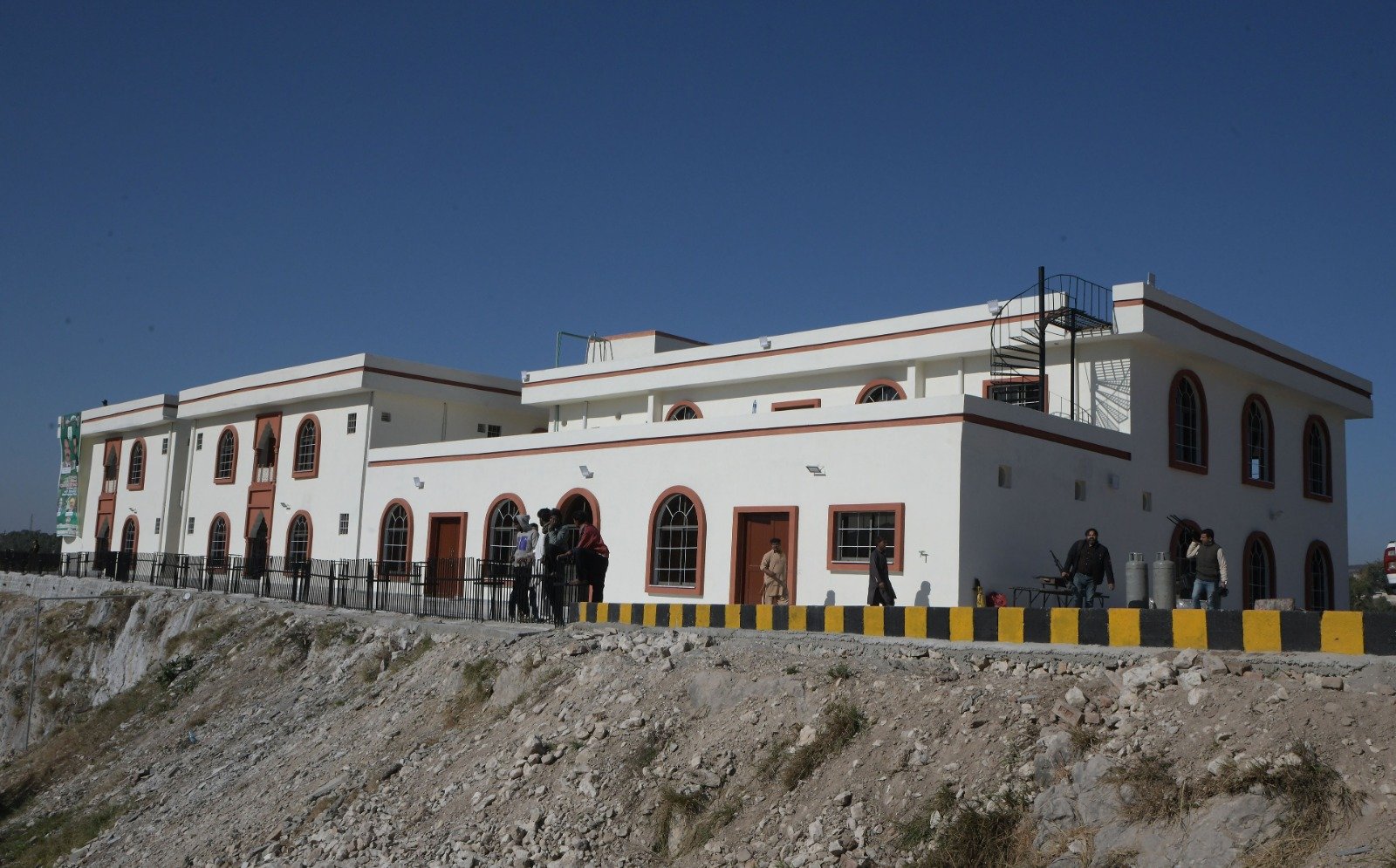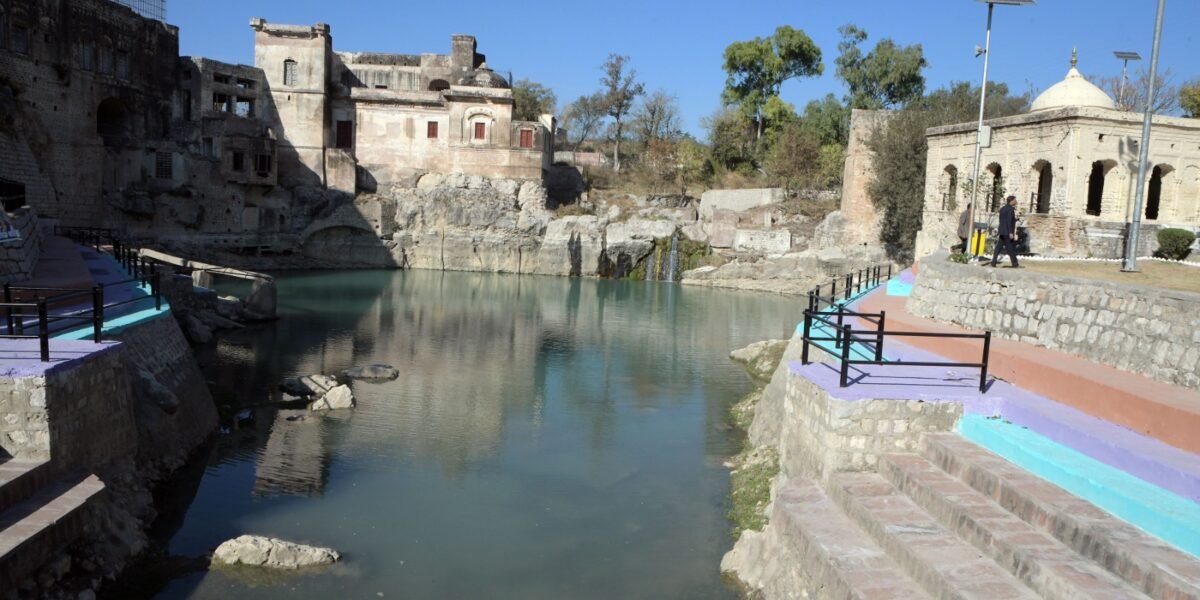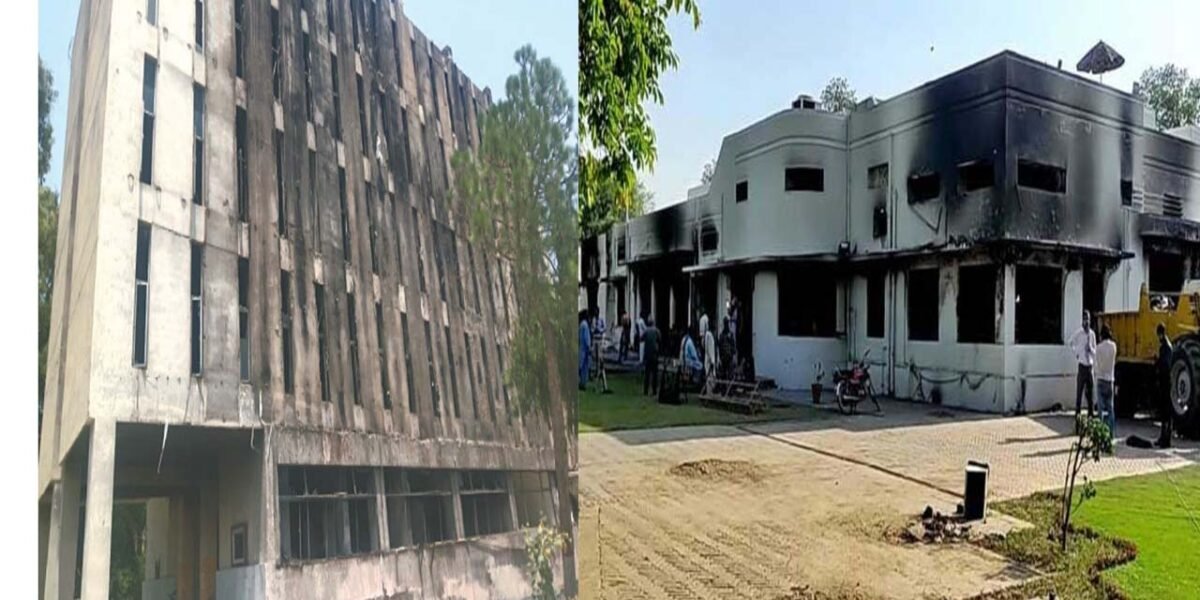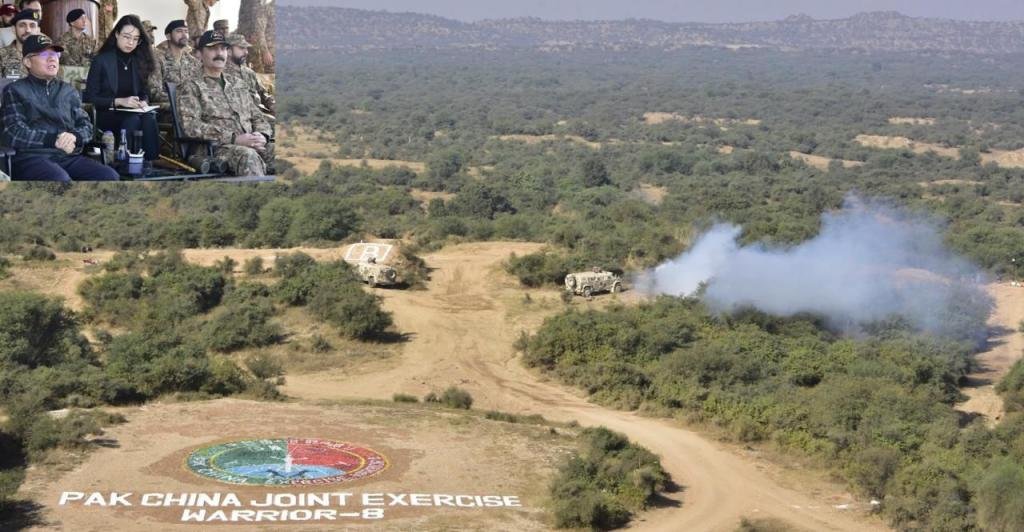CHAKWAL: Pakistan has built a state-of-the-art residential facility at the historic Katas Raj Temple complex in the Chakwal district of Punjab.
The new facility aims to accommodate Hindu pilgrims visiting this sacred site, enhancing their experience and accessibility to one of Hinduism’s most revered locations.
Katas Raj Temple
The Katas Raj Temples stand as a key landmark of Hindu religious devotion. Dedicated to multiple Hindu deities, the ancient complex comprises twelve temples, with the sacred Amrit Kund Pond at its center.
According to Hindu mythology, the pond was formed by the tears of Lord Shiva, mourning the loss of his wife, Sati. The name “Katas” is derived from the Sanskrit word Kataksha, meaning “teary eyes.”

The site also holds deep historical significance, as it is believed the Pandava brothers from the Mahabharata visited the location during their exile. In addition to its Hindu importance, the Katas Raj complex is a revered spot for Sikh pilgrims, with Guru Nanak, the founder of Sikhism, said to have visited it centuries ago.
New residential block to facilitate pilgrims
Federal Minister for Religious Affairs and Interfaith Harmony Chaudhry Salik Hussain inaugurated the newly completed residential block. Constructed with a cost of Rs 183.5 million, the facilities include 36 rooms equipped with attached washrooms, a kitchen, and a dining hall to ensure a comfortable stay for Hindu pilgrims travelling from India and around the world.
Chaudhry Salik Hussain said that Katas Raj is a symbol of interfaith harmony. He said that Pakistan is working to create a more welcoming environment for Hindu and Sikh pilgrims, including those from India. He said that the government is working on expanding religious tourism.

Katas Raj Temple is the only one of the twelve temples open to pilgrims, but the site remains an important spiritual destination for devotees worldwide.
In his remarks, Chaudhry Salik Hussain said that Pakistan will increase the number of Indian pilgrims visiting the site. His comments come days after India refused to expand the number of Pakistani pilgrims to visit religious sites in India, such as the annual Urs of Hazrat Khawaja Syed Moinuddin Hasan Chishti at Ajmer Sharif.
















